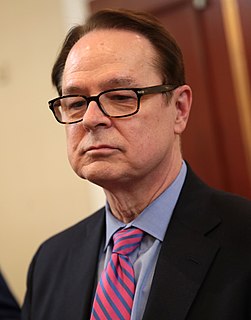A Quote by Carroll Quigley
A state is not the same thing as a society, although the Greeks and Romans thought it was. A state is an organization of power on a territorial basis.
Quote Topics
Related Quotes
Briefly, the State is that organization in society which attempts to maintain a monopoly of the use of force and violence in a given territorial area; in particular, it is the only organization in society that obtains its revenue not by voluntary contribution or payment for services rendered but by coercion.
It is unfortunately none too well understood that, just as the State has no money of its own, so it has no power of its own. All the power it has is what society gives it, plus what it confiscates from time to time on one pretext or another, there is no other source from which State power can be drawn. Therefore every assumption of State power, whether by gift or seizure leaves society with so much less power; there is never, nor can be, any strengthening of State power without a corresponding and roughly equivalent depletion of social power.
The society which we have built can in no way be termed "state socialism."The social organization which we have created can be termed a Soviet, socialist organization which has not yet been quite completed, but is in its root a socialist organization of society. The foundation of this society is public ownership.
We should distinguish at this point between "government" and "state" ... A government is the consensual organization by which we adjudicate disputes, defend our rights, and provide for certain common needs ... A state on the other hand, is a coercive organization asserting or enjoying a monopoly over the use of physical force in some geographic area and exercising power over its subjects.
Politics is about power. It is about the power of the state. It is about the power of the state as applied to individuals, the society in which they live and the economy in which they work. Most critically, our responsibility in this parliament is how that power is used: whether it is used for the benefit of the few or the many.
Think of civil society and the state as joined in a marriage of necessity. You already know who the wife is, the one who is supposed to love, cherish and obey: that's civil society. Think of the state as the domineering husband who expects to have a monopoly on power, on violence, on planning and policymaking.
Like other countries in the world, China must uphold its own sovereignty, territorial integrity and development interests. At the same time, we are willing to properly handle differences and disagreements in state-to-state relations in accordance with the basic norms governing international relations and the principle of mutual understanding, mutual accommodation, dialogue and consultation.
...it would be a simple way of solving the goiter problem. And in addition to that it would be the biggest thing in a medical proposition to be carried out in the state of Michigan, and Michigan is a large place. And as I thought of the thing the more convinced I became that this oughtn't to be a personal thing, This ought to be something done by the Michigan State Medical Society as a body. Recommending the addition of a trace of iodine to table salt.



































